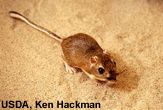Get a Buddy: Closeness May Breed Wellness

The key to a quick recovery may be a spoonful of tender loving care -- at least for those who are socially inclined.
In two separate animal studies researchers have found social contact speeds healing rates.
"Our goal is to understand the physiological mechanisms by which social support improves health," said lead investigator Courtney DeVries of Ohio State University, where both studies were done.
In the first case, hamsters with small skin wounds - and placed under slight duress - healed nearly twice as fast when a sibling was close by. The scientists also found that paired hamsters had lower levels of cortisol, a hormone related to stress, than lone individuals.
A similar experiment carried out on monogamous deer mice found that they too are up and around quicker when their mate joined them in the cage.
But the males of another type of deer mouse that mates with more than one female during the breeding season showed no preference for sharing their sick bed. They healed just as fast as the paired monogamous mice, no matter if they had company or not.
"It suggests that the beneficial effects of social housing aren't equivalent for all species, and may be limited to those that are monogamous or otherwise highly social," DeVries said.
Sign up for the Live Science daily newsletter now
Get the world’s most fascinating discoveries delivered straight to your inbox.
The benefits of companionship may one day be available in pill form. DeVries and her colleagues administered oxytocin, a hormone tied to social bonding in monogamous animals, to a separate group of hamsters. They found that these animals healed 25 percent faster than the solitary hamsters.
"This suggests that oxytocin is the main buffer against delays in wound healing," DeVries said.










